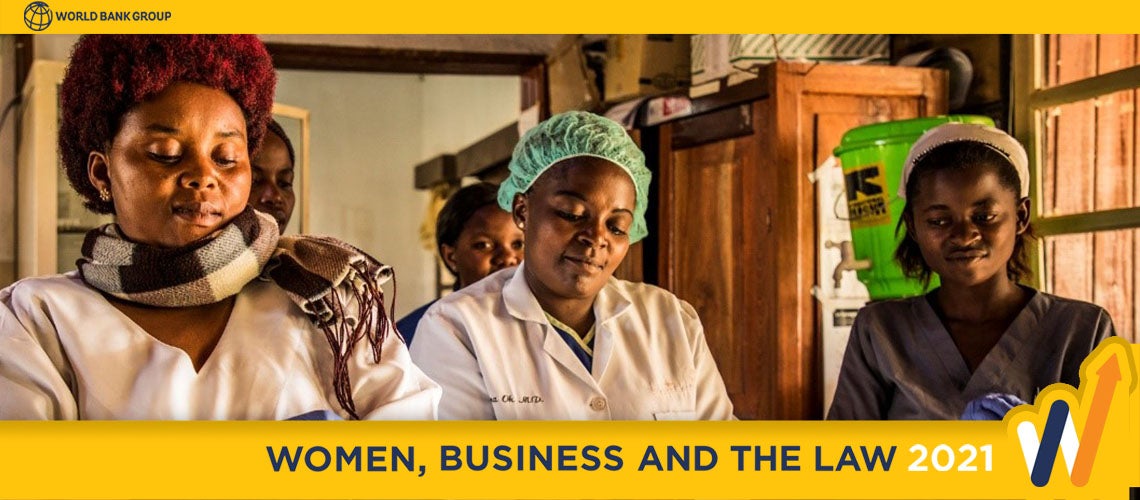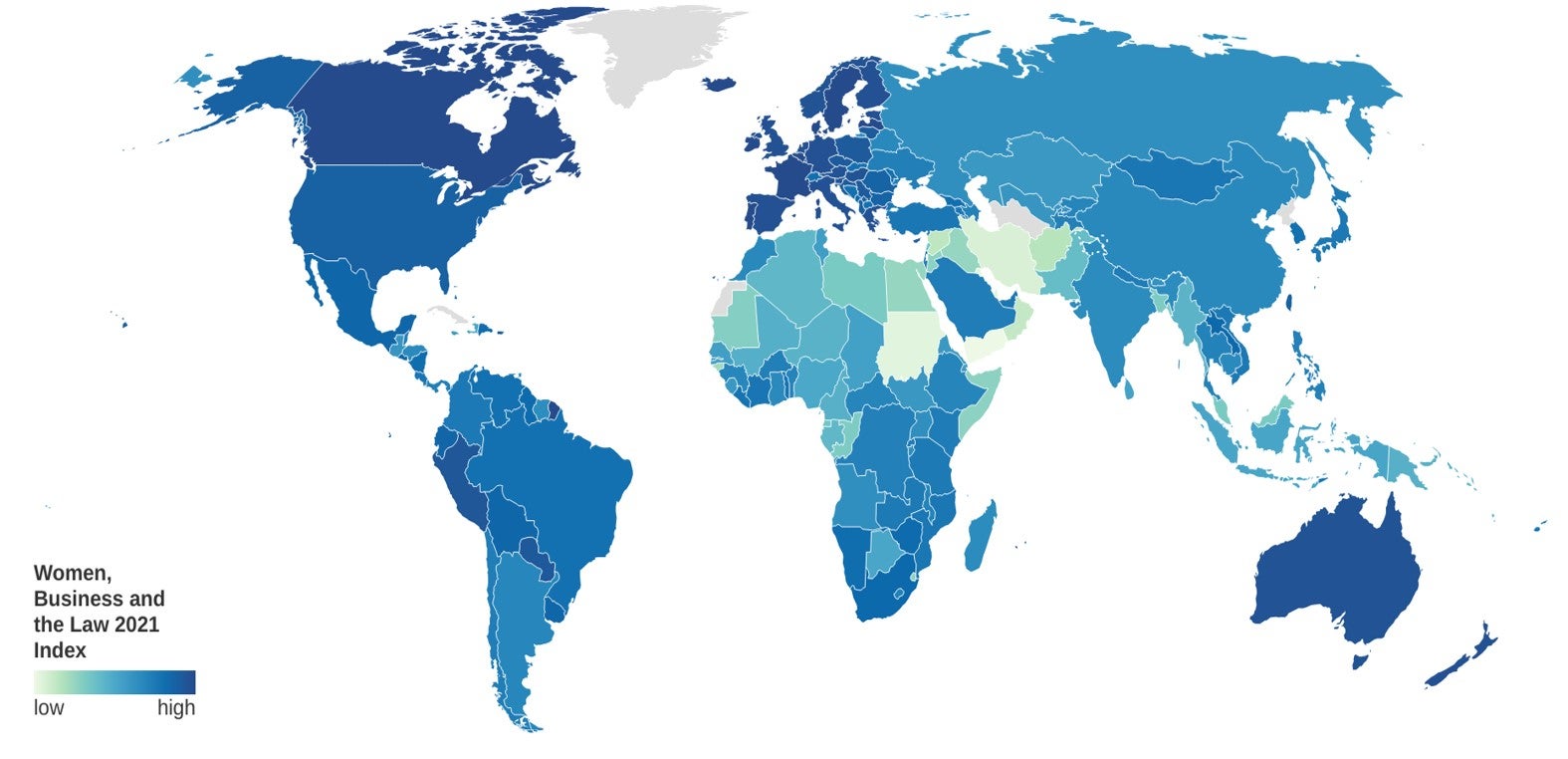 © World Bank
© World Bank
The economic crisis resulting from the COVID-19 pandemic is having a profound detrimental effect for most people around the world. Yet, it has impacted men and women differently. Women are more likely to work in health care, unpaid care, and domestic work, making them more susceptible to the consequences of the COVID-19 pandemic. Women still earn less than men for equally valued jobs, bear more of the childcare burden, and face a higher risk of violence in their homes. The pandemic has widened the gender gap in labor force participation, risking decades of progress for women as workers and entrepreneurs. As we write this, the COVID-19 pandemic is still claiming lives and livelihoods, and government policies to address the gender effects of the pandemic have not been enough given the magnitude of the challenge.
According to the World Bank’s Women, Business and the Law 2021 report published today, women still have only three-fourths the legal rights of men, on average around the world. This matters because better performance in the areas measured by the Women, Business and the Law index is associated with a narrower gender gap in development outcomes, more female policy makers, higher female labor force participation, and lower vulnerable employment. A legal environment that encourages women’s economic inclusion can also make them less vulnerable in the face of a crisis.
Figure 1. On average, globally, women have just three-fourths the legal rights of men
Women, Business and the Law measures how laws and regulations affect women’s economic opportunity in 190 economies. The 2021 edition covers reforms conducted between September 2019 and October 2020. The index analyzes economic rights during different milestones in a woman’s working life through eight indicators ranging from being able to move freely to rights in the workplace, through rights during marriage and after having children, how the law prevents or allows them to run their own businesses and manage assets all the way to retirement.
Figure 2. Laws affect women throughout their working lives
The global average score in 2020 is 76.1, up from 75.5 in 2019. In ten countries, women are on an equal legal standing with men across all areas measured – Belgium, Canada, Denmark, France, Iceland, Ireland, Latvia, Luxembourg, Portugal and Sweden. This year, Ireland joined the group by reforming parental leave and Portugal equalized rules for remarriage.
Twenty-seven economies implemented reforms aimed at equality of opportunity across seven of the eight indicators measured by Women, Business and the Law. Economies in the OECD high-income and Middle East and North Africa (MENA) regions reformed the most. Yet, the MENA economies still have the most room to improve.
The reform effort is, however, insufficient in the vast majority of countries. Today fewer than half of economies worldwide (90) have mandated equal remuneration for work of equal value. And in 88 economies, laws restrict the jobs and hours that women can work, affecting 1.6 billion women. This leads to occupational segregation, which has resulted in women being overrepresented in jobs that are more affected by COVID-19 disruptions, such as education, retail, tourism, hospitality, and domestic services. While the Pay indicator, which measures job restrictions and the right to equal pay, recorded the most improvement in scores in the new Women, Business and the Law 2021 report, it is also the indicator with the second-lowest performance out of the eight indicators.
Figure 3. Progress toward equality is uneven around the world
The Women, Business and the Law website has various resources available, including the report, economy snapshots, current and historical data, new data visualizations, PowerPoint slides, and much more. We invite you to visit the website, browse the information and help us disseminate the report’s findings. Reforming laws that hold women back from fully participating in the economy is more important than ever.
Over the next few months, we will continue to blog on the key findings from the report. We will explore:
- Progress towards gender equality
- Relationship between WBL indicators and other gender data
- How to integrate Women, Business and the Law data in projects
- Policy measures governments have implemented to address the gender effects of the COVID-19 pandemic
- Why Women, Business and the Law is considering new indicators related to laws governing childcare and measuring legal implementation
- New research questions which are needed to strengthen the economic case for gender equality
In March and April, we will be discussing the report’s findings, starting with a World Bank Live Event on March 1st 2021 at 8:30 AM (EST). Please post your questions for the panel and we hope you’ll join the conversation.
For more information sign up to our newsletter here.
Additional resources:
Website: Women, Business and the Law
Report: Women, Business and the Law 2021






Join the Conversation